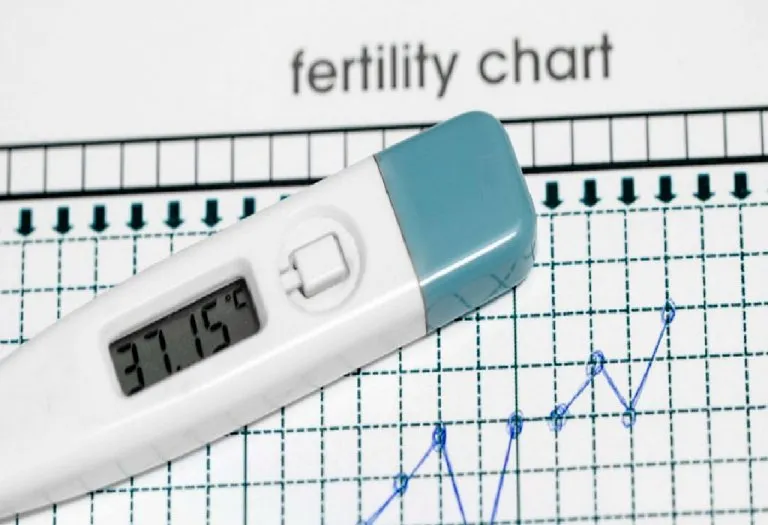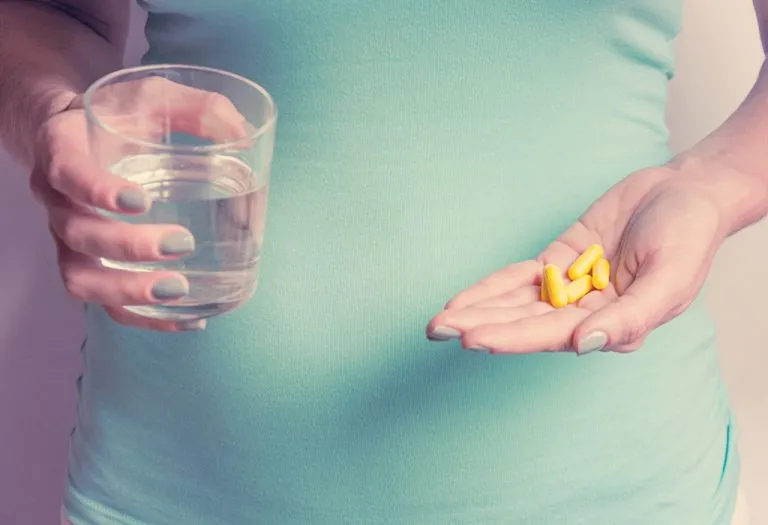Vitamin B6 for Fertility – Benefits, Dosage & Food Sources

Many couples today fail to conceive due to infertility issues and they may try various treatments available to cure the problem. But there’s one thing that can boost a couple’s chances of conceiving which is inexpensive and fairly simple: diet. A healthy diet, rich in various nutrients, can help improve a couple’s chances of conception. One such nutrient that is important for fertility is Vitamin B6. There is a strong connection between vitamin B6 and fertility. Vitamin B6 is a water-soluble vitamin that is found in a variety of foods. Let’s understand about vitamin B6 for fertility and how it can improve your fertility levels.
Impact of Vitamin B6 Deficiency on Fertility
Vitamin B6 is great for your body, especially in aiding fertility. If your body lacks this fundamental vitamin, here’s what you’re likely to face.
- Vitamin B6 plays an important role in maintaining and balancing the hormones in your body. A deficiency of Vitamin B6 will mean hormonal imbalance for you, especially an imbalance of oestrogen and progesterone.
- An irregular menstrual cycle, caused by the imbalance of hormones is another downside of vitamin B6 deficiency.
- Vitamin B6 deficiency can cause excess retention of water in the body, which may make one feel bloated.
- The lack of vitamin B6 also has a psychological impact on a person, which can cause mood swings. This again is attributed to the fact that the lack of Vitamin B6 largely affects the hormonal balance.
- Lack of Vitamin B6 also results in poor sperm and affects female egg quality. This is why this vitamin is important for both men and women.
- The luteal phase is a crucial stage of the menstrual and reproductive stage. It is the second half of the cycle, just after menstruation. This phase is important not just for fertility but also for a woman’s overall health. It prepares a woman’s body for yet another cycle. The lack or deficiency of Vitamin B6 has a negative impact on the luteal phase. A lot of hormones come into the picture during this phase. For the effective functioning of these hormones, it is important that you have the right nutrients, Vitamin B6 included.
How Does Vitamin B6 Boost Fertility?
Now that we’ve established the importance of Vitamin B6 and the impact of its deficiency, here’s a look into Vitamin B6 for conception and how it can boost fertility.
1. Balances Oestrogen and Progesterone
This is one of the most important benefits of vitamin B6 for fertility. As mentioned above, Vitamin B6 plays a crucial role in maintaining a balance of our hormones. Consuming foods rich in Vitamin B6 can balance the hormones oestrogen and progesterone, which are the two key players in reproduction.
2. Increases Cervical Mucus
Cervical mucus is extremely important as it helps in easy transportation of the sperm to the egg. In addition to that, it nourishes and protects the egg and sperm. Vitamin B6 helps in the generation of cervical mucus.
3. Strengthens the Luteal Phase
Vitamin B6 is known to strengthen the luteal phase. By this, it means that it makes your uterus more receptive to the factors of pregnancy. Adequate amounts of Vitamin B6 in your body can generate hormones that make the uterine lining stronger and increase the levels of progesterone, thereby increasing your chances of conception.
4. Restores Libido
Vitamin B6 can also increase or restore libido or sex drive as well. This is due to the increase in the hormone progesterone.
Dietary Sources of Vitamin B6
Vitamin B6 is found in a wide variety of foods. The foods include turkey, fish, oatmeal, brown rice, wheat germ, soya bean, walnuts, green leafy vegetables, bananas, avocado, eggs, milk, peanuts, and potatoes.
Should You Take Vitamin B6 Supplements for Fertility?
Vitamins function best when all the vitamins are present in the right amount. One vitamin alone won’t be enough. This is why it is recommended that people consume multivitamins unless there is a deficiency of a particular vitamin. As far as Vitamin B6 is concerned, taking its supplements won’t fulfil your requirements, which is why you must consult your healthcare provider before taking any supplements on your own.
Recommended Daily Intake of Vitamin B6 for Fertility
The Vitamin B6 fertility dosage varies for men and women. So if you’re thinking how much Vitamin B6 should you take for fertility, then here’s the answer.
1. From Your Diet
You are most likely to get all the Vitamin B6 you need from your daily diet if it is rich in nutrients. Through the diet, men should get around 1.4mg of Vitamin B6, and women should get 1.2mg of it.
2. From Supplements
The daily dose of Vitamin B6 supplements for men should be 1.4mg and for women, it should be 1.2mg. Make sure you look for food-based or organic supplements, as opposed to synthetic, lab-made supplements. Food-based supplements are more natural and are absorbed better by the body.
Does Excess Consumption of Vitamin B6 Cause Any Side Effects?
Too much of anything can be bad for you, and the same holds true for Vitamin B6 as well. Studies have shown that excessive consumption of Vitamin B6 can lead to a condition known as peripheral neuropathy, in which one can lose the sense of feeling in their arms and legs. In some cases, Vitamin B6 can cause stomach aches, nausea, loss of appetite, fatigue, and headaches as well.
What Can Affect the Vitamin B6 Levels in Your Body?
Certain conditions or your daily habits can decrease the levels of vitamin B6 in your body. But the good thing is you can control them. Find out what decreases Vitamin B6 in your body and what you can do:
- Stress is a known culprit for many diseases, disorders, and deficiencies. And it can affect your Vitamin B6 levels too. If you’re planning to conceive, avoid taking stress. Relax and try to stay healthy and happy.
- Excessive consumption of coffee or caffeinated products can cause Vitamin B6 deficiency. Make sure you limit your coffee intake to not more than one cup a day. You can switch to healthier drinks like chamomile tea, lavender tea, or other herbal teas.
- Stop consuming excessively processed foods. Try to eat a wholesome diet that is rich in vitamins and minerals.
- Make sure you don’t overcook or excessively heat up your food as your food may lose its nutritional value. Eat fresh food and consume lots of green veggies and fruits.
FAQs
1. Can Vitamin B6 influence egg quality in women over 35?
Emerging research suggests that Vitamin B6 may improve egg quality in women over 35 by reducing oxidative stress, potentially enhancing fertility outcomes in older women.
2. Does Vitamin B6 play a role in reducing elevated prolactin levels?
Vitamin B6 has been shown to lower elevated prolactin levels, which can sometimes interfere with ovulation. By reducing prolactin, it may improve fertility in some women.
Now that you know the benefits of Vitamin B6 for fertility, its effects, and the dangers of its excessive consumption, you can go ahead, and under the consultation of your doctor, make the necessary lifestyle changes and incorporate Vitamin B6 into your diet. Also, knowing when to take B6 for fertility during the ovulation phase or the luteal phase, is important, so again, consult your healthcare practitioner. Incorporate a good exercise regime as a part of your daily routine as well. Physical activities like running, swimming, or even walking can have a good impact on your overall health and improve your chances of conception.
References/Resources:
1. Wibowo. N, Purwosunu. Y, Sekizawa. A, Farina. A, et. al.; Vitamin B₆ supplementation in pregnant women with nausea and vomiting (International Journal of Gynecology & Obstetrics); National Library of Medicine; https://pubmed.ncbi.nlm.nih.gov/22189065/; March 2012
2. Grajecki. D, Zyriax. B, Buhling K; The effect of micronutrient supplements on female fertility: a systematic review (Archives of Obstetrics and Gynaecology); National Library of Medicine; https://pubmed.ncbi.nlm.nih.gov/22302137/; May 2012
3. Vitamin B-6; Mayo Clinic; https://www.mayoclinic.org/drugs-supplements-vitamin-b6/art-20363468
4. Furness. D, Fenech. M, Dekker. G, Khong. T, et. al.; Folate, Vitamin B12, Vitamin B6 and homocysteine: impact on pregnancy outcome (Maternal & Child Nutrition); National Library of Medicine; https://www.ncbi.nlm.nih.gov/pmc/articles/PMC6860531/; April 2013
5. Herell. H; Nausea and Vomiting of Pregnancy; American Family Physician; https://www.aafp.org/pubs/afp/issues/2014/0615/p965.html
6. Babaei. A, Foghaha. M; A randomized comparison of vitamin B6 and dimenhydrinate in the treatment of nausea and vomiting in early pregnancy (Iranian Journal of Nursing and Midwifery Research); National Library of Medicine; https://pubmed.ncbi.nlm.nih.gov/24834091/; March 2014
7. Vitamin B6; The Nutrition Source; Harvard T.H. Chan; https://nutritionsource.hsph.harvard.edu/vitamin-b6/
Also Read:
Herbs to Boost Fertility
Foods To Increase Fertility For Conceiving Twins
Fertility Supplements That May Help You Conceive
Natural Ways to Increase Fertility in Men and Women
Was This Article Helpful?
Parenting is a huge responsibility, for you as a caregiver, but also for us as a parenting content platform. We understand that and take our responsibility of creating credible content seriously. FirstCry Parenting articles are written and published only after extensive research using factually sound references to deliver quality content that is accurate, validated by experts, and completely reliable. To understand how we go about creating content that is credible, read our editorial policy here.





































